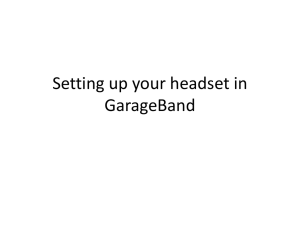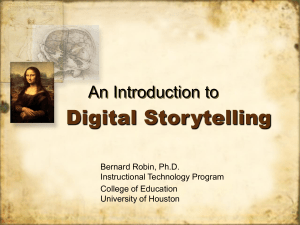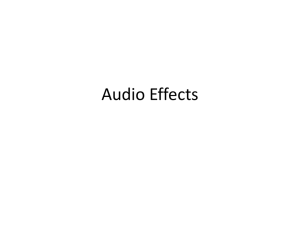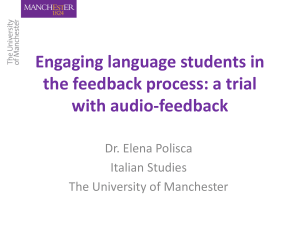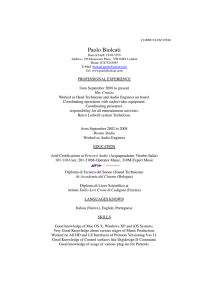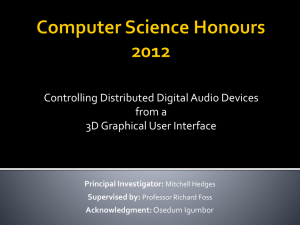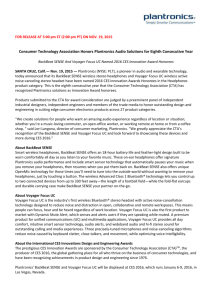Investigating the use of audio for providing feedback to students
advertisement
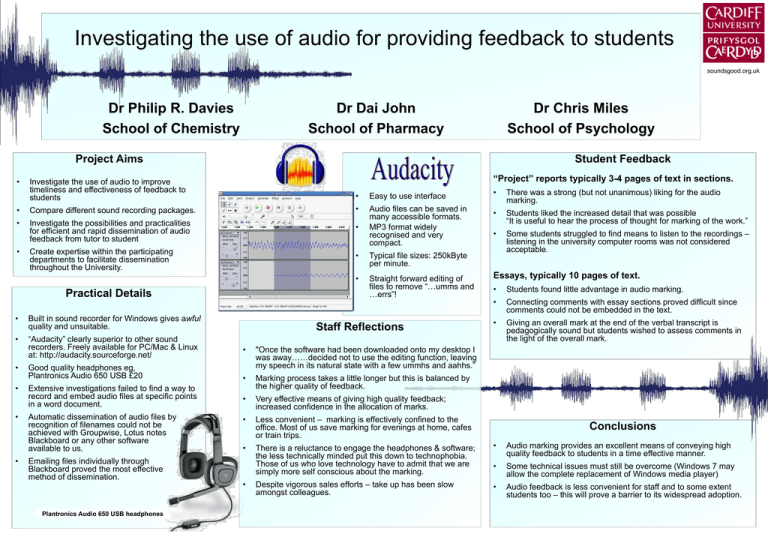
Investigating the use of audio for providing feedback to students soundsgood.org.uk Dr Philip R. Davies School of Chemistry Dr Dai John School of Pharmacy Dr Chris Miles School of Psychology Project Aims • Student Feedback “Project” reports typically 3-4 pages of text in sections. Investigate the use of audio to improve timeliness and effectiveness of feedback to students • Easy to use interface • Compare different sound recording packages. • • Investigate the possibilities and practicalities for efficient and rapid dissemination of audio feedback from tutor to student • Audio files can be saved in many accessible formats. MP3 format widely recognised and very compact. Create expertise within the participating departments to facilitate dissemination throughout the University. • Typical file sizes: 250kByte per minute. • Straight forward editing of files to remove “…umms and …errs”! • Practical Details • Built in sound recorder for Windows gives awful quality and unsuitable. • “Audacity” clearly superior to other sound recorders. Freely available for PC/Mac & Linux at: http://audacity.sourceforge.net/ • • • • Good quality headphones eg, Plantronics Audio 650 USB £20 Extensive investigations failed to find a way to record and embed audio files at specific points in a word document. Automatic dissemination of audio files by recognition of filenames could not be achieved with Groupwise, Lotus notes Blackboard or any other software available to us. Emailing files individually through Blackboard proved the most effective method of dissemination. Plantronics Audio 650 USB headphones Staff Reflections • There was a strong (but not unanimous) liking for the audio marking. • Students liked the increased detail that was possible “It is useful to hear the process of thought for marking of the work.” • Some students struggled to find means to listen to the recordings – listening in the university computer rooms was not considered acceptable. Essays, typically 10 pages of text. • Students found little advantage in audio marking. • Connecting comments with essay sections proved difficult since comments could not be embedded in the text. • Giving an overall mark at the end of the verbal transcript is pedagogically sound but students wished to assess comments in the light of the overall mark. • "Once the software had been downloaded onto my desktop I was away……decided not to use the editing function, leaving my speech in its natural state with a few ummhs and aahhs.” • Marking process takes a little longer but this is balanced by the higher quality of feedback. • Very effective means of giving high quality feedback; increased confidence in the allocation of marks. • Less convenient – marking is effectively confined to the office. Most of us save marking for evenings at home, cafes or train trips. • There is a reluctance to engage the headphones & software; the less technically minded put this down to technophobia. Those of us who love technology have to admit that we are simply more self conscious about the marking. • Audio marking provides an excellent means of conveying high quality feedback to students in a time effective manner. • Some technical issues must still be overcome (Windows 7 may allow the complete replacement of Windows media player) Despite vigorous sales efforts – take up has been slow amongst colleagues. • Audio feedback is less convenient for staff and to some extent students too – this will prove a barrier to its widespread adoption. • Conclusions
